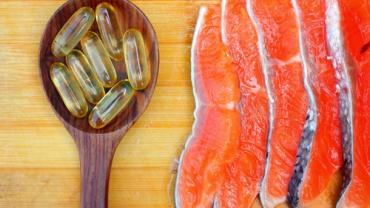
The omega-3 fatty acid DHA (docosahexaenoic acid) is essential for overall health and optimal central nervous system function. It is highly concentrated in the brain within metabolically active neuronal regions, including synaptic membranes, synaptic vesicles and mitochondria, and makes up 15% of the total fatty acids in the cerebral cortex.
According to a new review published in Neurobiology of Aging, researchers demonstrate the effects of gender and DHA status on patients with an APOE genotype. Regular consumption of fish oil is associated with a reduced risk of Alzheimer’s disease; however, cognitive improvement from DHA intake is lower in APOE-e4 individuals.
Alzheimer’s disease and related disorders (ADRD) are a group of conditions that cause mild cognitive impairment (MCI) or dementia. There is evidence that simple prevention strategies can reduce the risk of ADRD by as much as 50%. Higher DHA concentrations have been associated with improved cognition and reduced MCI and ADRD risk. Previous dosing of DHA in healthy individuals for cognitive improvement has been just over 1 gram of DHA daily with success.
Previous research demonstrates individuals with an APOE-e4 genotype have significantly lower DHA concentrations, indicating altered DHA transport or metabolism. Supplementation with larger doses of DHA – up to 3 grams per day – may help overcome the transport and metabolic deficits. These patients should consider preventative strategies with DHA supplementation, as the neuropathy typically takes 20-30 years to develop.
In addition, post-menopausal women with an APOE-e4 genotype are at a much higher risk of MCI and ADRD. It is suggested that this may be due to the loss of the neuroprotective benefit of estrogens which plays a role in neuroplasticity, neurotransmission, and the integrity of the blood-brain barrier. However, studies using hormone replacement have not shown positive results. This may be due to treatment period, dose, and combination of hormones used.
Animal studies have demonstrated that key Alzheimer’s associated genes affecting energy and amyloid deposition are significantly altered prematurely in females predisposing them to the development of the disease. APOE-ε4 females are at higher risk of MCI at the ages of 55 to 70 years of age and of Alzheimer’s disease from 65 to 75 years of age, compared to men. After 75 years of age there is not a higher risk over either sex. This indicates a higher susceptibility to the APOE-ε4 allele in females following menopause.
Additional brain-supportive nutrients to consider include GPC, CDP-choline (citicoline), Ginkgo biloba, phosphatidylserine, curcumin, folate, and B12. GPC and CDP-choline are water-soluble forms of choline that can cross the blood brain barrier and support brain health. These help make more acetylcholine, neurotransmitters, and phosphatidylcholine in the cell membranes.
Each person's biochemical individuality exerts a major influence on his or her health. Lifestyle choices and environmental exposures filtered through genetic predisposition are fundamental factors in the expression of disease.
By Michael Jurgelewicz, DC, DACBN, DCBCN, CNS